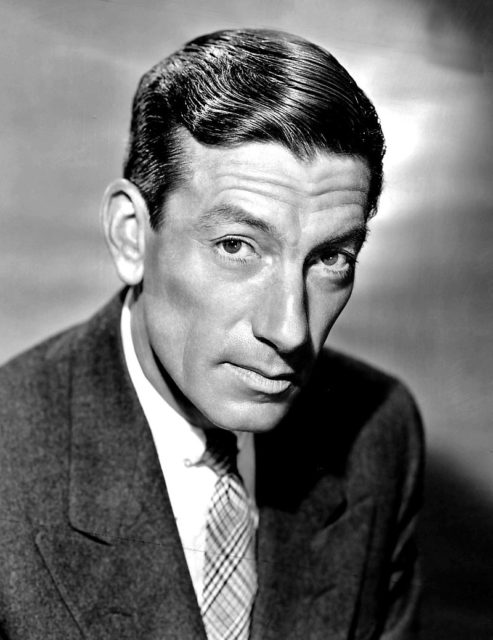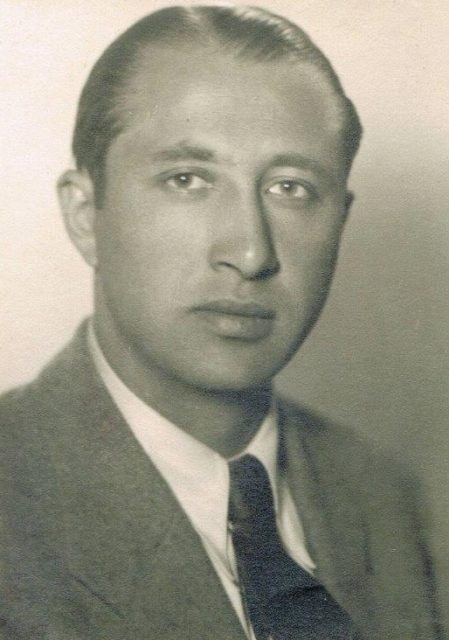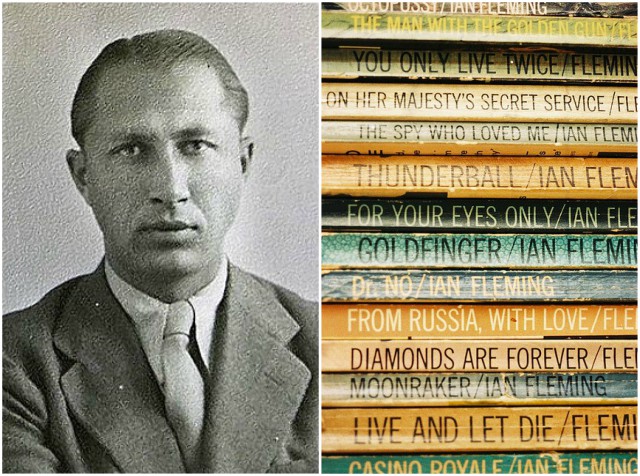“The scent and smoke and sweat of a casino are nauseating at three in the morning. Then the soul-erosion produced by high gambling–a compost of greed and fear and nervous tension–becomes unbearable and the senses awake and revolt from it… James Bond suddenly knew that he was tired.”
Have you ever wondered if a real person inspired Ian Fleming when he created James Bond? Fleming himself was an intelligence officer and he was well known among friends for his string of girlfriends and a taste for fine liquor and fast cars.
But it seems that there was a person who served as a model for the fictional James Bond. All you have to do is replace his name with that of Dusko Popov in the above excerpt from Fleming’s 1953 novel Casino Royale, and you’re onto something.
Imagine Sean Connery, Daniel Craig, Pierce Brosnan, or whatever Bond actor pops on your mind, wearing his impeccably sewn suit while walking into the casino, giving his most seductive gaze, and introducing himself with the words: “My name is Popov, Dusko Popov.” It doesn’t have the same bite as “My name is Bond, James Bond,” but the story of Dusko Popov, a Yugoslavian double agent during World War II, is intriguing enough to suggest a strong link to the famous fictional spy.

During the Second World War, Ian Fleming was the special assistant to the Director of Naval Intelligence, and as such he took part in several espionage missions. Born to a wealthy family, during his younger years Fleming had tried a number of different occupations before becoming a writer. The spy novels featuring James Bond were written after the war. However, Fleming admitted to relying on his personal experiences and the people he met during the war when constructing the maneuvers and thrills of James Bond. One such encounter, which obviously left a great impression on Fleming, took place at the Casino Estoril in Portugal in 1941.

The biography of Popov, Into the Lion’s Mouth, written by Larry Loftis, pinpoints the moment when Fleming observed the double agent’s style firsthand. It was at a baccarat table, where Popov bet against a wealthy adversary who had fled Nazi Germany. The event took place at Casino Estoril, which in Fleming’s novel was transformed into the impressive setting depicted in Casino Royale. As an intelligence officer, Fleming was assigned to accompany Popov discreetly as an MI6 escort. Popov was carrying $40,000 that belonged to Her Majesty’s Government that night. Popov faced his opponent at the table and provokingly placed the $40,000 on the table, around 10 times more than people’s annual earnings in the early 1940s. The entire casino fell silent, and Popov’s opponent withdrew from the game.

Popov’s background explains how he was able to carry this off. Dusan, or Dusko, Popov was born on the Balkan Peninsula in Serbia to an affluent family, which afforded him with many privileges. He received a prestigious education, earned his degree in law, and later started his own firm. He was a fluent speaker of German and had several high-profile connections in Germany, all of whom held a secret contempt for the Nazis.

At the beginning of the Second World War, remembering that the best way to beat your enemy is to be close to him, Popov, then a Yugoslav intelligence officer, was able to gain employment with the German Intelligence Organization, Abwehr, as a Nazi spy. Believing him to be trustworthy, Abwehr included him in espionage training and gave him the code name Ivan. When Popov’s training was done and he was cleared for missions by the Nazis, he headed to London and expressed his interest in helping Britain defeat the Axis powers. British authorities were quite skeptical at the beginning but finally decided to take Popov to the passport control office that, at the time, was the cover for MI6. Once again, he proved his trustworthiness and was given the code name Tricycle.
This double gaming of Popov proved to be important in defeating the Nazis. The Germans would supply him with requests to obtain information from the English. Then, the English would give Popov misinformation to report back to Germany, enough to keep the Nazis assured that they were running a successful spy but clueless to the true key operations of the Allies. His greatest contribution to the war was to convince the Germans that the allied invasion of Europe wouldn’t take place in Normandy but in Calais. This caused a diversion of many of Hitler’s forces away from the beaches where British and American troops later landed. The Germans never doubted in Popov’s trustworthiness, although he was constantly sabotaging their actions. Nevertheless, there was one nation that Dusko Popov could not seem to gain the trust of.

In 1941, Abwher sent Popov to America to collect information and establish a network of spies. He was given a list of requests for information, including the defenses of the naval base Pearl Harbor in Hawaii. In America, Popov visited the FBI and warned their agents about the enemy’s interest in their defenses. Contrary to Popov’s expectations, director J. Edgar Hoover refused to believe that information, as he was known to distrust foreigners.
Now it must be noted that another similarity between Dusko Popov and James Bond was womanizing. He had a passionate love affair with the actress Simone Simon, whom he met in Paris prior to the war, and was known to enjoy luxurious living and the company of numerous women. In America, after a while Dusko realized that the FBI was not going to cooperate with him. But that didn’t deter him from using the money given to him by the Nazis to party with celebrities and ski at fashionable resorts. When Hoover found out about Dusko’s activities in America, he threatened to have him arrested if he didn’t leave the country as soon as possible.
Read another story from us: Sir Roger Moore, the longest-serving James Bond, dies at 89
The greatest irony of this charming yet ruthless spy was the fact that Dusko became the only post-war individual to receive both the Order of the British Empire as well as the German Iron Cross.
Popov died in 1981, following years of heavy smoking and drinking. Ian Fleming had predeceased him, dying of a heart attack in 1964.
